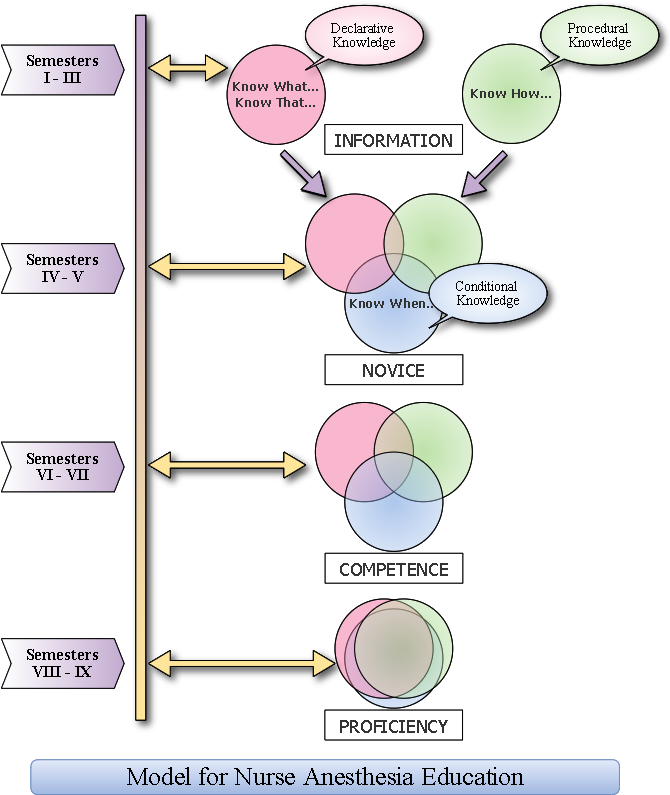Curricular Overview
Goal

To prepare nurses for a career as Certified Registered Nurse Anesthetists (CRNAs), the Nurse Anesthesia Program faculty subscribe to the belief that learning is a developmental process through which declarative, procedural and conditional knowledge bases are developed and refined in a developmental fashion. We also believe that case-based anesthesia instruction allows students to acquire flexible knowledge structures required to apply theory to practice.
Course
To achieve this integration of knowledge structures our innovative program provides intense, multidisciplinary didactic and clinical instruction. Students are prepared to be successful on the National Certification Examination (NCE) as well as to embark upon successful careers as Certified Registered Nurse Anesthetists (CRNAs).
- Basic Sciences taught by content experts, professors of Anatomy, Chemistry, Pharmacology and Physiology.
- Basic science classes taken with medical and other doctoral students at the Brody School of Medicine.
- Basic Sciences Clinical Correlations taught by clinical anesthesia experts.
- Full Anatomy Course (5 semester hours) with cadaver lab, taught by 4 Ph.D faculty.
- Pharmacology taught by 7 Ph.D faculty includes simulated autonomic lab guided by pharmacologist.
- Physiology course taught by 7 Ph.D faculty with clinically relevant labs.
- Chemistry course designed for nurse anesthesia students that provides the organic and biochemical underpinnings of medicinal and physiological chemistry taught by Ph.D faculty.
- Applied Sciences taught by clinical experts (CRNAs and MDs) in classroom, and during clinical conferences. Principles reinforced in the clinical area.
- Student-friendly faculty who tailor clinical and didactic seminars to meet individual needs.
- Small class size with low faculty to student ratio.